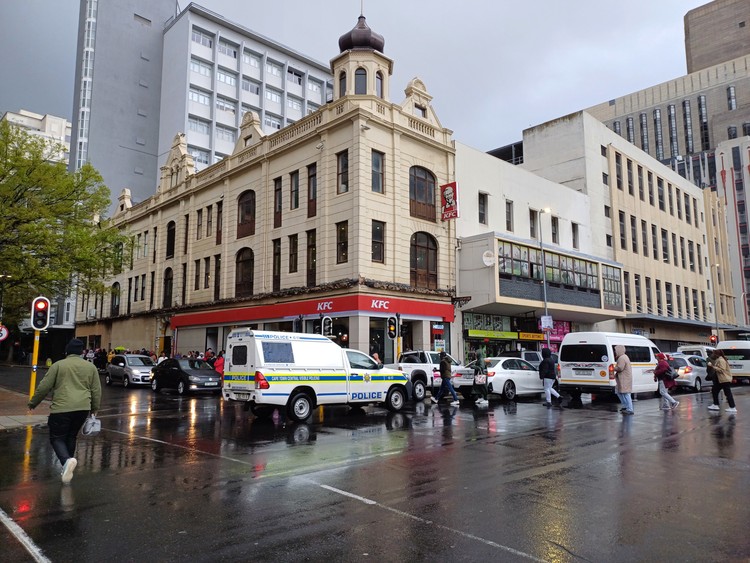
27 July 2025
The Western Cape government says it has a number of social and affordable housing projects in the works for central Cape Town. Archive photo: Steve Kretzmann
This year marks a significant turning point for housing delivery in the Western Cape, particularly in Cape Town’s inner city.
The Western Cape Government is surging ahead with three catalytic, mixed-use affordable housing precincts in the city centre: Leeuloop, Founders’ Garden and Prestwich precincts. Together, they will deliver over 3,500 new homes, including hundreds of social and affordable housing units.
These projects are not just about building homes, they are about redressing spatial injustice, unlocking economic potential, and creating inclusive, dignified communities in the heart of Cape Town.
The Leeuloop Precinct will be a two-tower, high-rise development in the Cape Town CBD. Our target is to deliver 830 units, with a minimum of 35% dedicated to regulated social housing. The Request for Proposals process is already underway, and sod-turning is planned for later this year.
The over R2-billion Founders Garden development is the largest inner-city housing development yet and will consist of 1,476 social housing residential units and 1,162 open market units, bringing the total to over 2,630 units. This project has completed land-use approvals and is moving into procurement and developer appointment. Construction will begin soon after transfer.
Finally, the Prestwich Precinct, also in the inner city, will provide 310 residential units, including 120 affordable housing opportunities. This is a unique development that showcases intergovernmental cooperation, as both the Western Cape government and the City of Cape Town have made available their immovable assets for this development.
The development rights are secured, and post-2025 implementation is expected, pending the relocation of the Provincial Pavement Testing Laboratory and a successful procurement process to appoint a developer.
Together, these developments represent the largest provincial-led urban housing intervention in decades, delivering much-needed housing opportunities in the Cape Town CBD, at scale.
During public interactions, we have noticed that many people are unsure what “social housing” means, especially when it comes to inner-city projects.
It is often confused with Reconstruction and Development Programme (RDP) housing, now referred to as Breaking New Ground (BNG) housing. Social housing is a completely different approach.
Social housing is subsidised rental housing for people earning between R1,850 and R22,000 per month, regulated under the Social Housing Act and overseen by the Social Housing Regulatory Authority (SHRA). The units are managed by accredited social housing institutions or other private developers and remain reserved for rental purposes.
By contrast, affordable housing, according to the Western Cape’s definition, refers to rental or ownership options for households typically earning up to R30,000 per month, often supported through indirect subsidies such as cross-subsidisation or discounted land values. These may be delivered without SHRA involvement, provided mechanisms are in place to ensure lasting affordability.
Affordable housing should be primarily targeted at households earning between R3,500 a month and the upper threshold of the financial Sector Code Affordable Housing Standards, which currently stands at R27,200.
The 2021 Banking Association of South Africa Financial Sector Code Affordable Housing Standards defines the affordable housing target market as households earning an upper income limit of R26,100 (rounded).
Any housing provision that complies with the definition of the Financial Services Sector, annually updated by using the midpoint between the Consumer Price Index and Building Cost Index, is considered to be affordable housing in terms of the City of Cape Town’s Municipal Spatial Development Framework (MSDF).
The choice between social housing and broader housing models is determined by several factors: land value, location, financial viability, target income groups, and the availability of public subsidies.
For instance, where SHRA funding is accessible and income thresholds are tightly focused, we will pursue regulated social housing. Where broader affordability is needed and SHRA constraints become a bottleneck, we lean toward cross-subsidised, mixed-income models that offer greater flexibility.
The Western Cape government is pioneering alternative and blended finance (ABF) approaches to unlock these developments. Our ABF enables departments to combine public grants, private investment, and innovative land value strategies to fund developments without overburdening the fiscus.
For example, at Leeuloop and Founders’ Garden, we are using the residual value of high-demand inner-city land to fund the affordable components via cross-subsidisation, where the sale of open-market units directly finances the social housing share.
To ensure these units remain affordable over time, structured development agreements, zoning overlays, and long-term rental caps are enforced. This allows flexibility while maintaining the core principle: affordability for working-class families in the city.
The regulated social housing model plays a vital role but is not without challenges. SHRA is facing underfunding relative to the need. Although the SHRA process may be viewed as slow and administratively rigid, this is necessary to ensure rigorous due diligence, and to provide a regulated environment that ensures the units are retained for their intended purpose. The Western Cape government supports the framework but also recognises that to meet demand at scale and pace, we must innovate beyond it.
Our view is clear: regulated social housing is part of the solution, not the whole solution. That’s why the Western Cape is leading the way with open-market, cross-subsidised developments that deliver more units, faster, in high-demand areas, while ensuring they remain accessible to those who need them most.
The Western Cape government is not just building houses, it is shaping the future. Through partnerships with SHIs, private developers, local and provincial governments, and most importantly, residents and civil society, we are reshaping our urban landscape.
Social and affordable housing in the inner city is no longer a dream. It’s happening right now, right here. And we invite everyone to walk this journey with us.
Views expressed are not necessarily those of GroundUp.